10 Critical Ketogenic Diet Tips
A ketogenic diet is a very low carbohydrate, moderate protein and high fat based nutrition plan. A ketogenic diet trains the individual’s metabolism to run off of fatty acids or ketone bodies. This is called fat adapted, when the body has adapted to run off of fatty acids/ketones at rest.
This nutrition plan has been shown to improve insulin sensitivity and reduce inflammation. This leads to reduced risk of chronic disease as well as improved muscle development and fat metabolism (1, 2).
I personally recommend a cyclic ketogenic diet for most of my clients where you go low-carb for 3 days and then have a slightly higher carbohydrate day, followed by 3 lower carb days. This cycles the body in and out of a state of ketosis and is beneficial for hormone balance while keeping inflammatory levels very low.
The biggest challenge with this nutrition plan is to get into and maintain the state of fat adaption. Here are several advanced keto diet tips to get into and maintain ketosis.
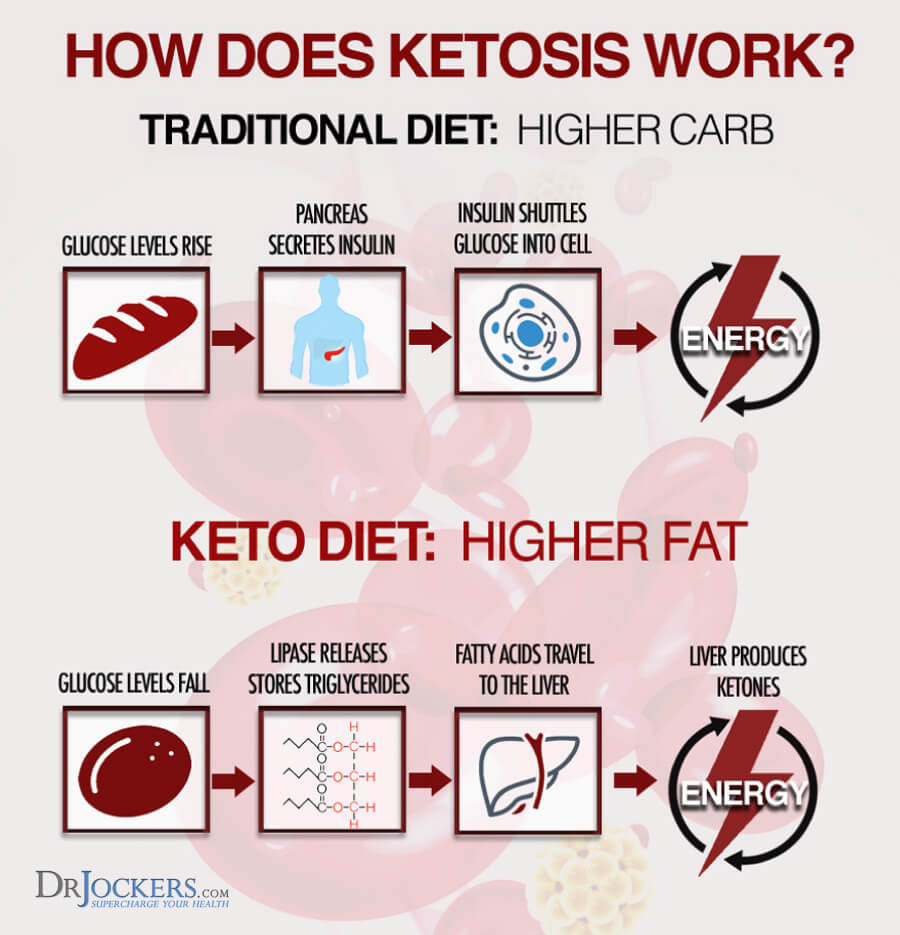
1. Stay Hydrated:
This is easily the most important of the ketogenic diet tips, but is not always easy to follow. We often get so busy in our day-day lives that we forget to hydrate effectively. I recommend super hydrating your system by drinking 32 oz of filtered water within the first hour of waking and another 32-48 oz of water before noon.
I have most of my clients do a water fast or eat light in the morning doing smoothies or keto coffee or tea. So hydration around these dishes should be well tolerated by the digestive system. In general, aiming to drink at least half your body weight in ounces of water and closer to your full body weight in ounces of water daily will help you immensely.
I weigh 160 lbs and easily drink 140-180 ounces of water each day. Sometimes more in the summer time. As you begin super hydrating your system, you will find this easier and easier and that you will actually crave the extra hydration.

2. Practice Intermittent Fasting:
This is one of the best ways to get into and maintain ketosis because you are reducing calories and not consuming protein or carbs. It is a good idea to go low-carb for at least a few days before starting this in order to avoid a hypoglycemic episode. You can read all about intermittent fasting strategies here
I recommend breaking your day into a building phase and a cleansing phase.
Building Phase: Time between your first meal and your last meal
Cleansing Phase: Time between your last meal and your first meal
I personally coach people to begin with 12-16 hour cleansing phases and 8-12 hour building phases. Over time, as your body adapts you may be able to move into a 4-6 hour building window with 18-20 hour cleansing phases each day. If you are able to do this effectively then it is easier to maintain ketosis. You will find this to be one of the extremely helpful ketogenic diet tips.
During the fast, I recommend hydrating and consuming herbal teas and organic coffee with MCT oil, coconut oil and/or grass-fed butter. The good small and medium chain fats in these help to boost up ketone production and stabilize blood sugar more effectively than water fasting alone.
Most people feel very good while they are fasting like this. For women, particularly those who struggle with hypothyroid, adrenal fatigue and hormonal imbalances, I will often recommend adding some collagen protein (about 5-10 grams) in with their coffee/tea. The protein will help with blood sugar regulation and satiety levels and improves overall hormone function.
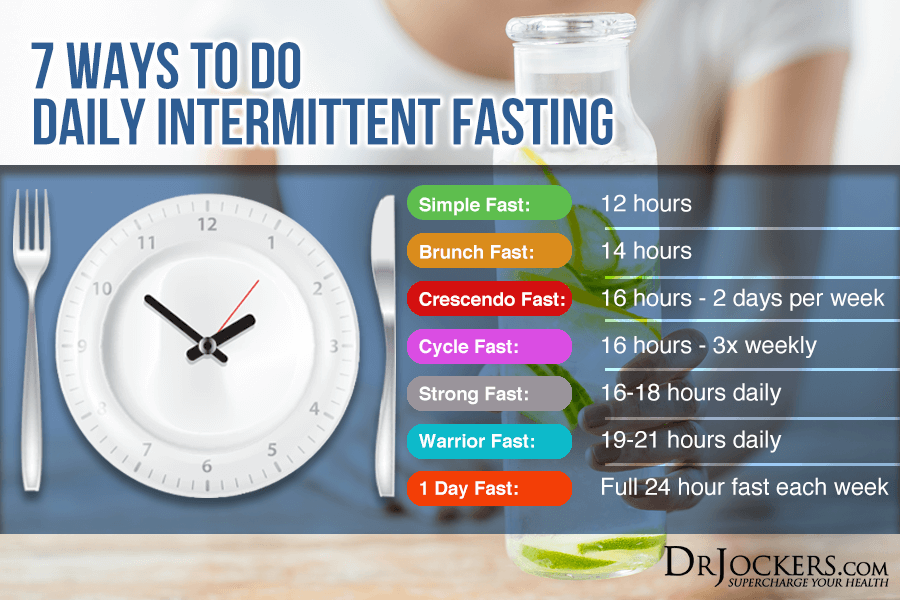
3. Consume Enough Good Salts:
We are told in our society that it is important to reduce our sodium intake. Many individuals in our society struggle with a high sodium/potassium ratio. This is due to the fact that when we are on a higher carbohydrate diet, we naturally have higher insulin levels. Insulin effects our kidneys in such a way to retain sodium which can lead to a higher sodium/potassium ratio (3, 4).
When we are on a low carbohydrate, ketogenic diet, we have lower insulin levels and therefore our kidneys excrete more sodium which can lead to a lower sodium/potassium ratio and a greater need for sodium in the diet.
On a low-carb diet you should look to get an additional 3-5 grams of sodium from natural foods and through the use of a pink salt like Himalayan sea salt. 1 tsp of pink salt is equivalent to 2 grams of sodium. Here are the ways I recommend adding in additional sodium and you will find these are vital ketogenic diet tips:
- Drinking organic broth throughout the day.
- Being generous with the amount of quality sea salt or pink salt you use on your food
- Adding ¼ tsp of high quality salt to 8-16oz of water throughout the day
- Adding sea vegetable like kelp, nori and dulse to dishes
- Consuming celery and cucumber which are low carb and have natural sodium
- Having sprouted and salted pumpkin seeds or salted macadamia nuts as a snack
4. Get Regular Exercise:
We could talk all day about ketogenic diet tips focusing on nutrition but quality movement is essential. Regular, high intensity exercise helps to activate the glucose transport molecule called GLUT-4 receptor in the liver and muscle tissue. The GLUT-4 receptor acts to pull sugar out of the blood stream and store it as liver and muscle glycogen. Regular exercise doubles the levels of this important protein in the muscle and liver (5).
This is a very important adaptation for maintaining ketosis because it will allow the individual to handle a little bit more carbohydrates in the diet because the body wants to store them in the muscle and liver tissue.
Large compound exercises that use multiple muscle groups have the greatest impact on GLUT-4 receptor activity (6). This includes squats, deadlifts, push-ups, standing overhead presses and pull-ups or pull-downs or bent over rows.
Incorporating a regular exercise program that includes these resistance training exercises along with running sprints and low-intensity exercise such as walking helps to balance blood sugar and improve the ability to get into and maintain ketosis.
Just be sure not to overdo it. Small amounts of high intensity training go a long way. If you overtrain your body, you will secrete higher amounts of stress hormones that will drive up blood sugar and pull you out of ketosis (7).
Here is a Sample Exercise Program to Help:
Monday: Upper Body resistance training for 15-20 mins
Tuesday: Lower Body resistance training for 15-20 mins
Wednesday: 30 minute walk around the block
Thursday: Upper Body resistance training for 15-20 mins
Friday: Lower Body resistance training for 15-20 mins
Sat/Sun: Recreational activities and walking
*If you are a high level athlete or do regular intense exercise such as Crossfit, consult with your trainer or coach who is familiar with your goal to achieve a state of ketosis and modify the training based on that.
*If you are battling a chronic disease or have stage III adrenal fatigue then I would recommend not doing any intense exercise and instead focus on stretching and breathing exercises such as yoga and tai chi and low impact movement such as light walking or elliptical exercises.
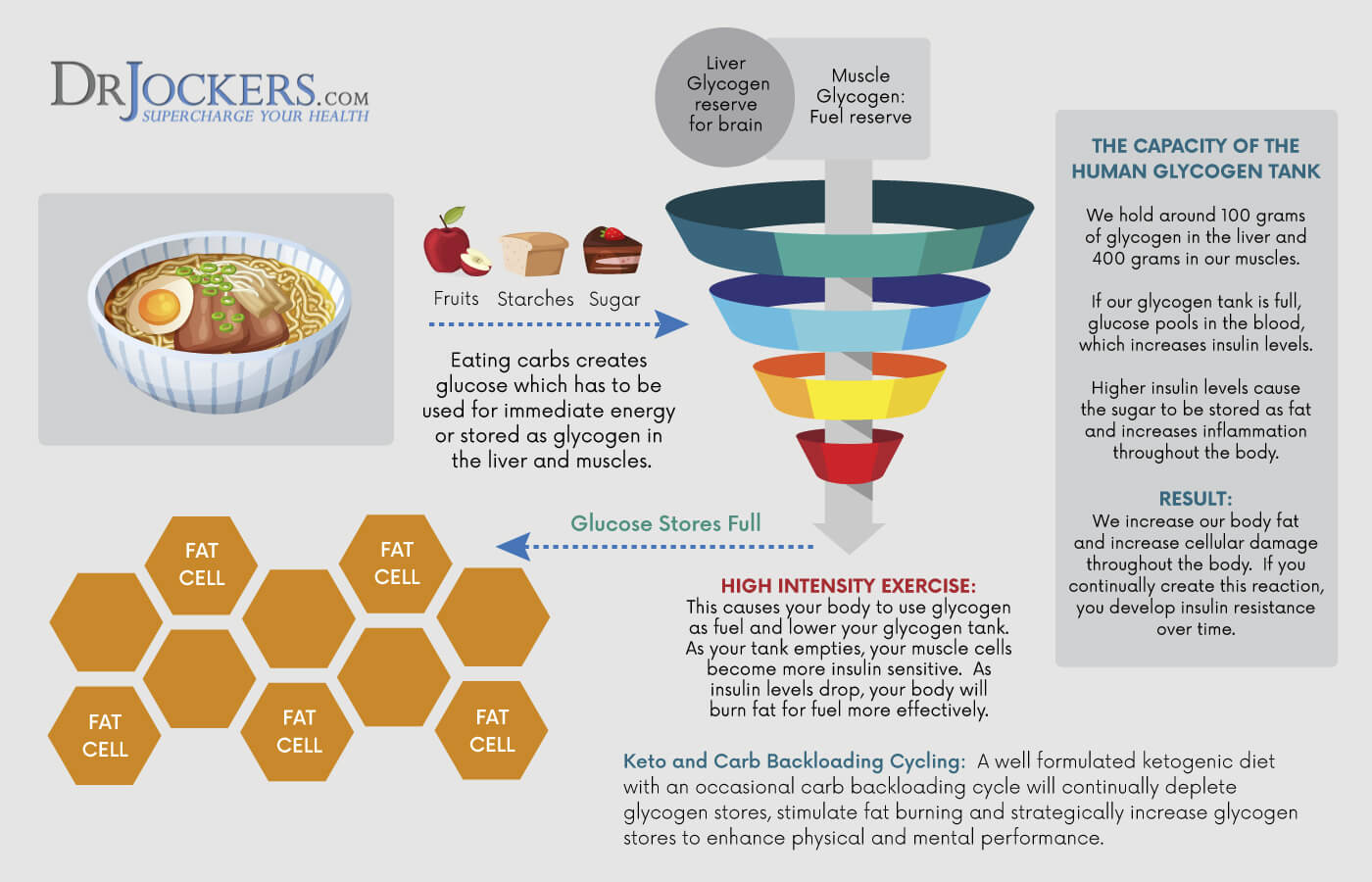
5. Improve Your Bowel Motility:
Constipation is one of the biggest challenges people have on a ketogenic diet. If you are constipated, you will not be able to remain into ketosis as it drives up stress hormones and blood sugar. Constipation is often due to one of the following:
- Pre-existing struggles with constipation due to small intestinal bacterial overgrowth (SIBO) or Candida overgrowth.
- Not consuming enough fibrous vegetables & fermented foods, drinks and tonics
- Dehydration
- Inadequate electrolyte consumption (sodium, potassium, calcium and magnesium in particular)
- Chronic stress which shuts down the gastrocolic contractions
The ketogenic diet tips to remedy this are to correct any bacterial or yeast overgrowth issues by consuming fermented foods if tolerable such as kimchi, sauerkraut, apple cider vinegar, pickles, etc. I also recommend doing extra magnesium supplementation and consuming a lot of clean water and adding in pink salts for extra sodium. Doing a fresh green drink everyday will also help with increasing potassium, magnesium and calcium levels.
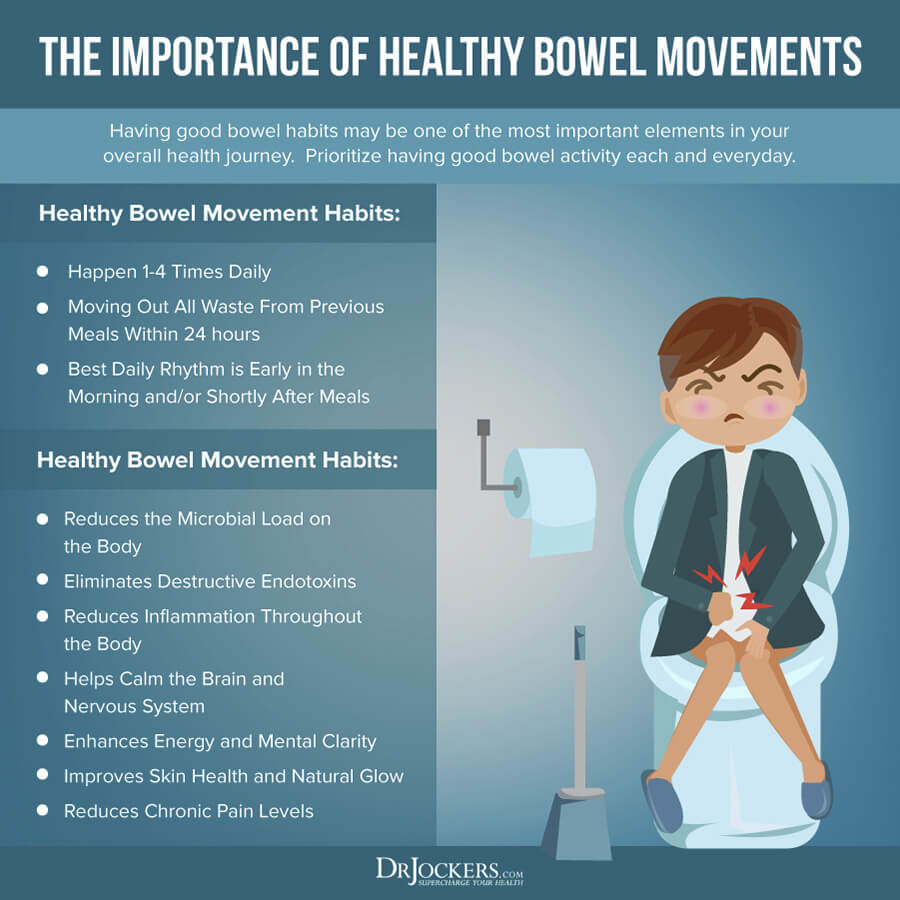
6. Don’t Eat Too Much Protein:
Many people doing a ketogenic diet consume too much protein. If you consume excessive protein then your body may turn the amino acids into glucose through a biochemical process called gluconeogenesis (8). This is the least important of all the ketogenic diet tips in this article. For some individuals, they can eat tons of protein and stay in ketosis while others cannot so you have to experiment and get to know your body.
If you notice yourself coming out of ketosis then see how you are responding to the amount of protein in your meals. Some people need higher protein levels, while others can do just fine on lower protein levels.
The key variables include your level of exercise intensity and type of exercise (resistance vs aerobic) and your desire to gain muscle or lose weight. Someone who does intense resistance training in order to gain muscle will need more protein than someone who is the same size and is doing aerobic or resistance training to lose weight. Another person who weighs the same but is only walking for exercise, will need even less than the other two.
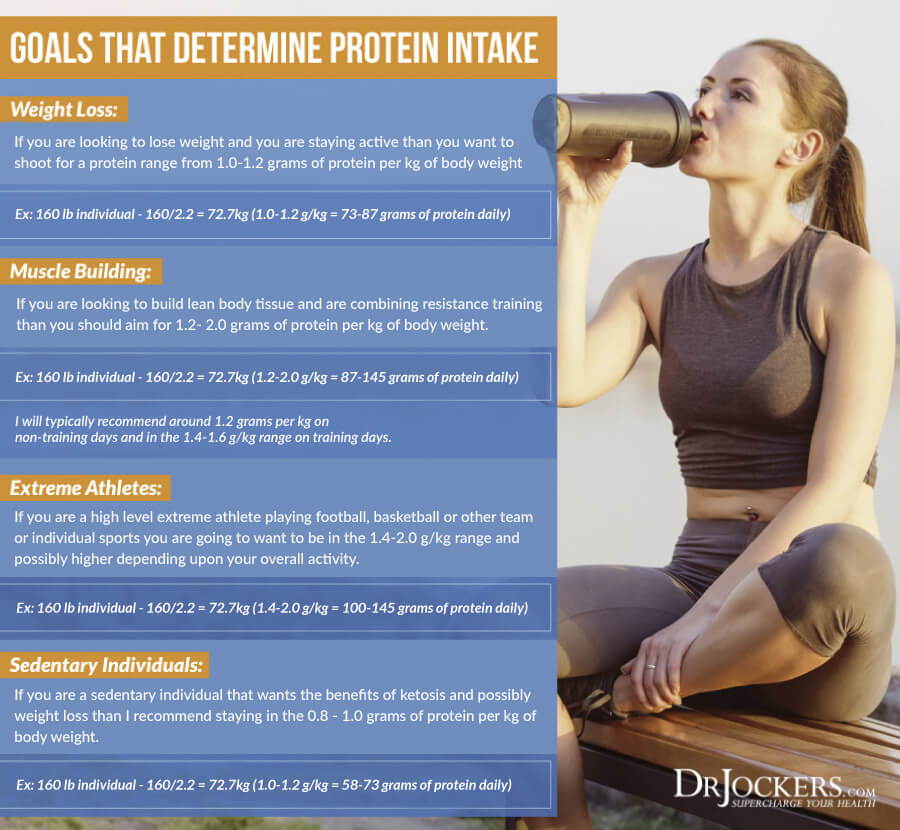
Ketogenic Diet Tips for Protein Consumption
You want to aim for about 1 gram per kg of body weight. So, I weigh 160 lbs which comes out too (160/2.2 lb/per kg) 73 grams of protein. When I do heavy strength training (4 days a week), I will go up to 100-120 grams but I typically am around 80 grams a day on my off days.
Take your weight and divide by 2.2 to figure out the grams of protein per kg of body weight. Aim to get this on your lighter workout days. If you are doing more strength training or trying to gain muscle, bump it up to 1.6 grams per kg.
Sedentary Individuals: 0.6-1.0 g/kg of body weight. If you are not exercising intensely, you may struggle to get into ketosis with 1 g/kg of protein, so try to drop it back to 0.6-0.8 and see how you do.
Active But Not High Intensity Training: 0.8-1.0 g/kg of body weight. If you are walking on a regular basis but not doing high intensity training (leaves you out of breath) or strength training then try 0.8 g/kg and see what your ketone levels look like.
High Intensity Training: 1.0-1.6 g/kg. If you are training with weights or doing sprint style of exercise at least 3-4 times per week then you will most likely need more than 1.0 g/kg. Try experimenting by bumping it up to 1.2 g/kg and inch towards 1.6 g/kg and see how you feel and what your ketone readings look like.
It is ideal to get your protein in 2-3 different servings daily with a minimum of 15 grams and a maximum of 50 grams per meal. The lower level is for a light weight individual while the upper limit is for a very large, strength training male.
It is ideal to get your protein in 2-3 different servings daily with a minimum of 15 grams and a maximum of 50 grams per meal. The lower level is for a light weight individual while the upper limit is for a very large, strength training male.
Most of us should aim for 20-35 grams per meal. Here is an example of how this would work:
Individual A: 150 lbs – needs 68 grams of protein daily. Does not exercise other than walking. This person should eat either 2 meals of 30-35 grams or 3 meals a day with roughly 20-25 grams of protein per meal.
Individual B: 150 lbs and enjoys doing resistance and aerobic training 3-4x a week but does not want to gain weight. This person should look to get 68 grams on non-training days and 75-80 grams on training days. So 25-30 grams of protein per meal.
Individual C: 150lbs and does high intensity resistance training 4-5x per week and wants to gain muscle mass. They should consume around 80 grams of protein on off days and 100 grams of protein on training days. This would mean 30-40 grams of protein per meal.
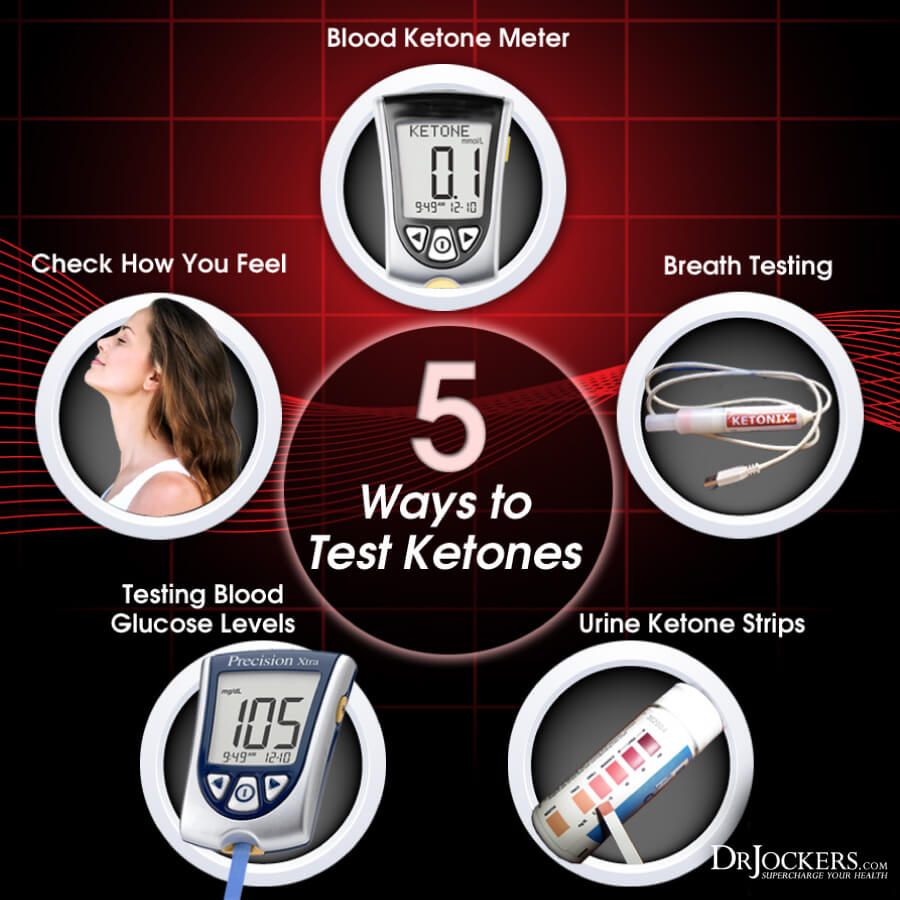
7. Choose Carbs Wisely:
We all know that a ketogenic diet is a low-carb plan but I recommend consuming nutrient rich carbohydrate sources such as non-starchy veggies and small amounts of low-glycemic fruits like lemon, lime and/or a small handful of berries in a protein shake. One of the ketogenic diet tips I often recommend is cycling in carbs from time to time, such as once per week.
When you cycle out of ketosis once a week, you increase your carbs on that particular day by adding in nutrient dense sources such as more berries in a shake or a sweet potato with tons of grass-fed butter and cinnamon. On low carb days, avoid the sweet potato and keep berries down to a small handful at most.
6 Low carb days with no more than 1 serving of fruit (other than lemon/limes) and no starchy veggies and keeping net carbs (not counting fiber) to 40 grams or so.
1 higher carb day with 2 servings of anti-oxidant rich low-glycemic fruit and 1-2 servings of starchy veggies (pumpkin, yam, sweet potato, carrot or beet) and allowing yourself to go up to 80 grams of net carbs.
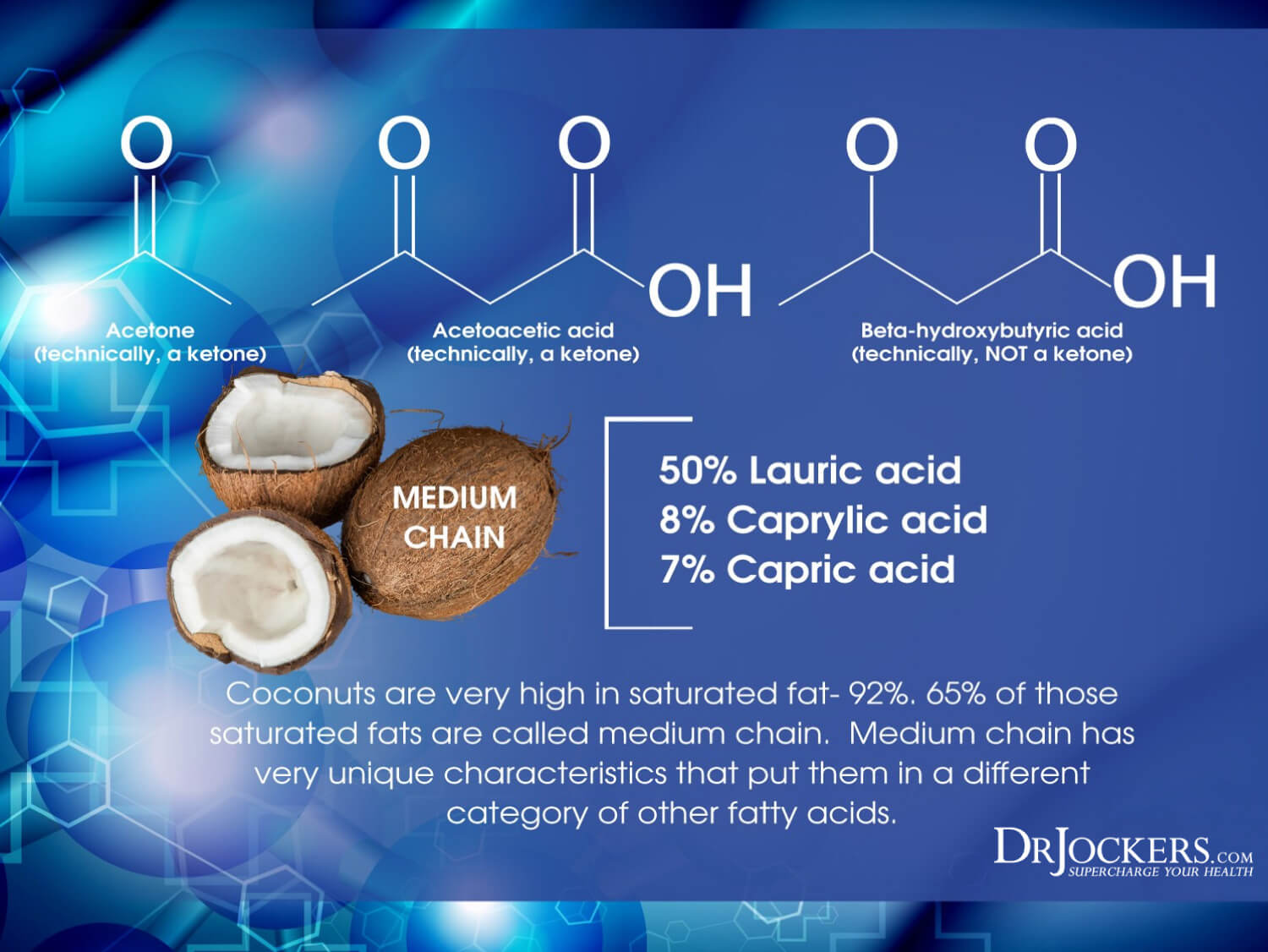
8. Use MCT Oil Whenever Possible:
Using a high quality medium chain triglyceride (MCT) oil is perhaps the most important thing one can do to get into ketosis and maintain it. That is because the use of a high MCT oil based diet allows one to consume more protein/carbs and maintain ketosis.
A diet that consists of long chain fatty acids, depends upon 80-90% of calories coming from fat. Adding in lots of MCT oil brings this down to 60-70% fats (9). This is because MCTs are immediately metabolized into ketone bodies and used for energy quickly in the body (10).
Many people, including I for many years, believe that coconut oil is the same as MCT oil. This is not true. Although MCT oil is made from coconut oil, it contains 100% pure medium chain triglycerides (capric and caprylic acids), while coconut oil contains about 35% long chain trigylceride (LCT) and 50% lauric acid which is classically considered a MCT but acts more like an LCT. That means that coconut oil is only 15% MCT and only 1/6th as ketogenic as pure MCT oil.
You can cook with MCT oil, add it to protein shakes, green drinks, coffee/tea, etc. throughout the day to keep your ketone levels up. I recommend using our Keto Brain MCT oil which is C8 caprylic acid that is the most ketogenic MCT on the market.

9. Keep Stress Down:
Chronic stress will shut down your ability to be and stay in ketosis. If you are going through a tough period of your life, then maintaining ketosis may not be the proper goal. This doesn’t mean you should begin carb loading, but instead reset your goal to simply stay on a lower carb, anti-inflammatory diet.
Stress raises up stress hormones who function to elevate blood sugar so you can fight or flight from the chronic stressor. This is fine when it is for very short periods of time, but when it is prolonged, it drives up your blood sugar and lowers ketones.
Devise some strategies that will help you lower your stress load and be able to create more peace and relaxation in your life. Read this article on stress resilience for some advanced strategies.
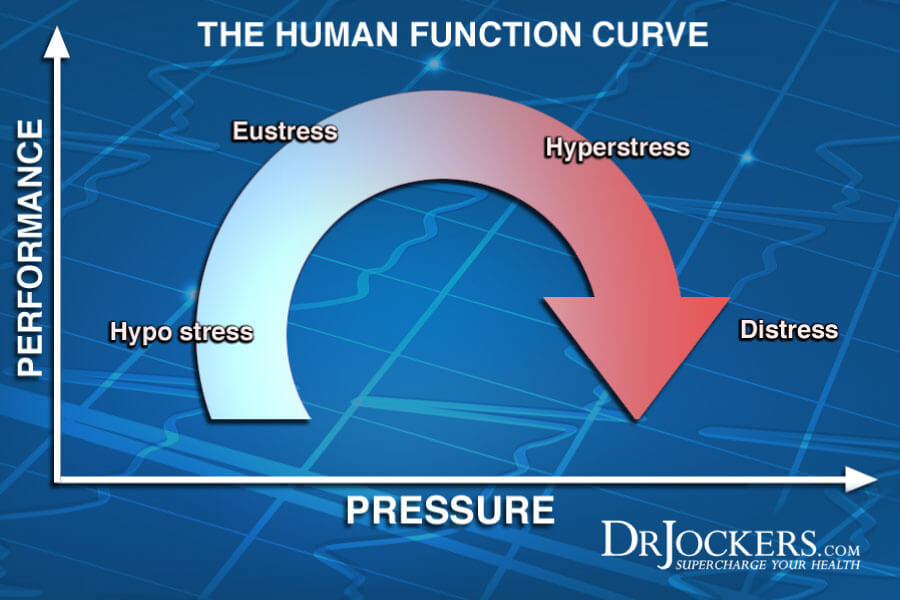
10. Improve Your Sleep:
If you are sleeping poorly, you will elevate stress hormones and cause blood sugar dysregulatory problems. Be sure to set yourself up to go to sleep at a good time (before 11pm) and sleep in a completely dark room. I recommend sleeping 7-9 hours each night depending upon your stress levels (more stress means you need more sleep) and the amount you feel as though you need to feel good and mentally alert throughout the day.
Keep your room cool (60-65 degrees is usually ideal) with an overhead fan providing circulating air. I also recommend using a sleep mask to block out more melatonin disrupting light. If you are extremely sound sensitive or in a louder area then using ear plugs can be extremely helpful!
Here is an article on advanced tips to sleep better
Here is a video on proper sleeping postures to use
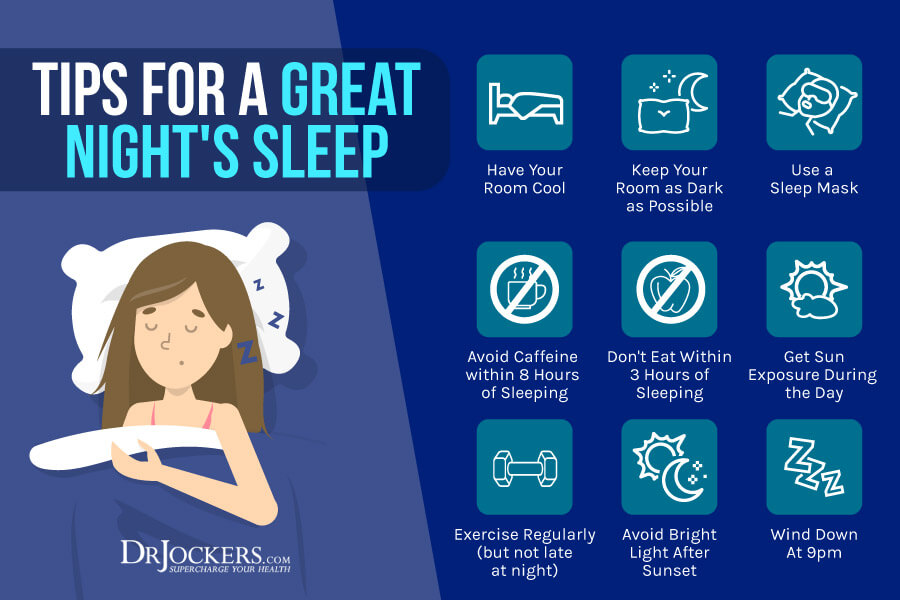
Ketogenic Diet Tips Conclusion:
Healthy lifestyle strategies play a very important role in helping you get into and maintain ketosis. Using some sense with your lifestyle habits and activities can mean all the world of difference between a state of fat adaptation where you have sustainable energy and mental clarity or a state of sugar burning where you are feeling sluggish, having brain fog and carbohydrate cravings.
By understanding how your body tolerates stress and following the strategies above you will give yourself a significant advantage in life. You will be able to understand what unique factors keep you in ketosis and what factors knock you out of it. This will help you prepare yourself for optimal career performance, a lean physique and great energy for relationships and recreational activities.
So which of these ketogenic diet tips has been the most helpful for you on your health journey? Would love to know in the comments box below!
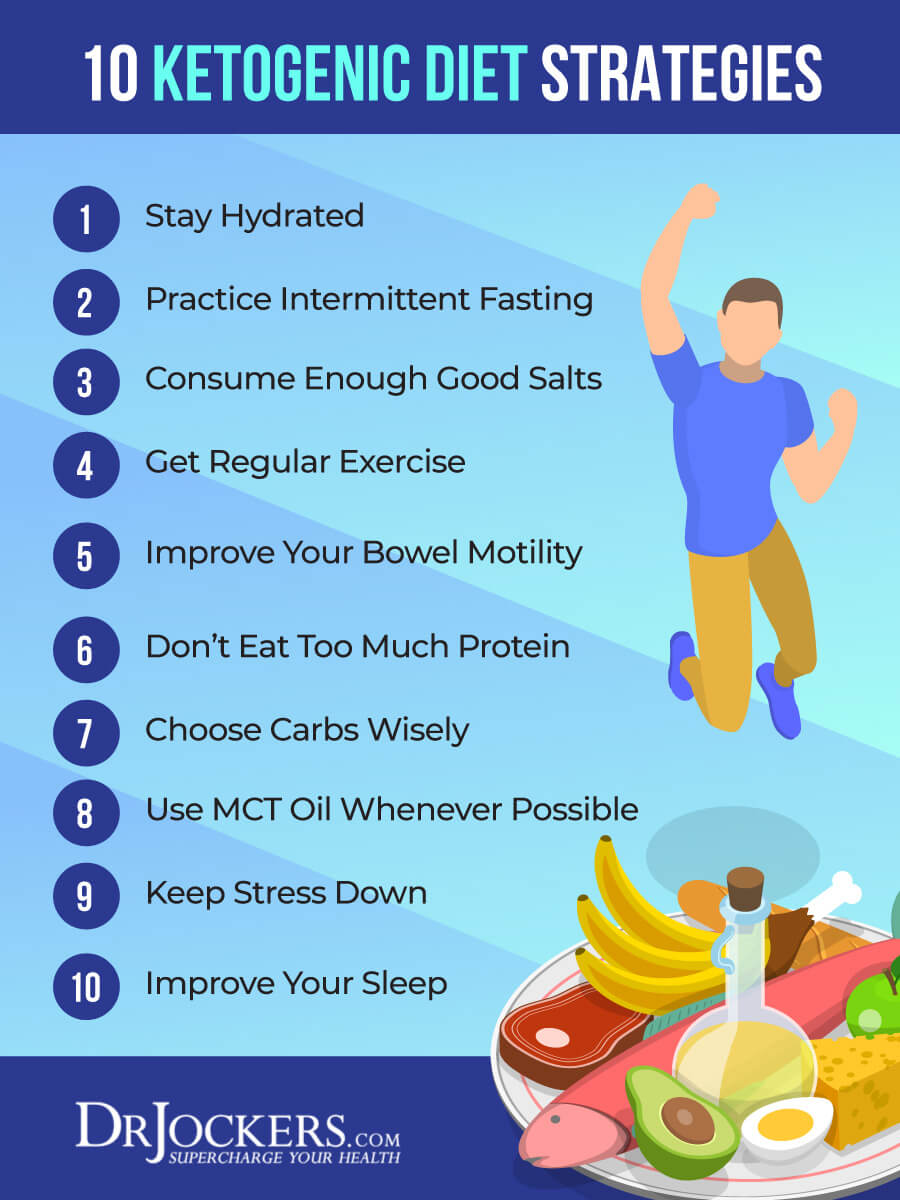
Sources For This Article Include:
1. Krilanovich NJ. Benefits of ketogenic diets. Am J Clin Nutr. 2007 Jan;85(1):238-9; author reply 239-40. PMID: 17209202
2. Manninen AH. Metabolic Effects of the Very-Low-Carbohydrate Diets: Misunderstood “Villains” of Human Metabolism. Journal of the International Society of Sports Nutrition. 2004;1(2):7-11.
3. Friedberg CE, van Buren M, Bijlsma JA, Koomans HA. Insulin increases sodium reabsorption in diluting segment in humans: evidence for indirect mediation through hypokalemia. Kidney Int. 1991 Aug;40(2):251-6. PMID: 1942773
4. DeFronzo RA, Cooke CR, Andres R, Faloona GR, Davis PJ. The effect of insulin on renal handling of sodium, potassium, calcium, and phosphate in man. J Clin Invest. 1975 Apr;55(4):845-55. PMID: 1120786
5. Ren JM, Semenkovich CF, Gulve EA, Gao J, Holloszy JO. Exercise induces rapid increases in GLUT4 expression, glucose transport capacity, and insulin-stimulated glycogen storage in muscle. J Biol Chem. 1994 May 20;269(20):14396-401. PMID: 8182045
6. Richter EA, Hargreaves M. Exercise, GLUT4, and skeletal muscle glucose uptake. Physiol Rev. 2013 Jul;93(3):993-1017. PMID: 23899560
7. Brooks K, Carter J. Overtraining, Exercise, and Adrenal Insufficiency. Journal of novel physiotherapies. 2013;3(125):11717.
8. Manninen AH. Very-low-carbohydrate diets and preservation of muscle mass. Nutrition & Metabolism. 2006;3:9.
9. Liu YM, Wang HS. Medium-chain triglyceride ketogenic diet, an effective treatment for drug-resistant epilepsy and a comparison with other ketogenic diets. Biomed J. 2013 Jan-Feb;36(1):9-15. PMID: 23515148
10. Page KA, Williamson A, Yu N, et al. Medium-Chain Fatty Acids Improve Cognitive Function in Intensively Treated Type 1 Diabetic Patients and Support In Vitro Synaptic Transmission During Acute Hypoglycemia. Diabetes. 2009;58(5):1237-1244.

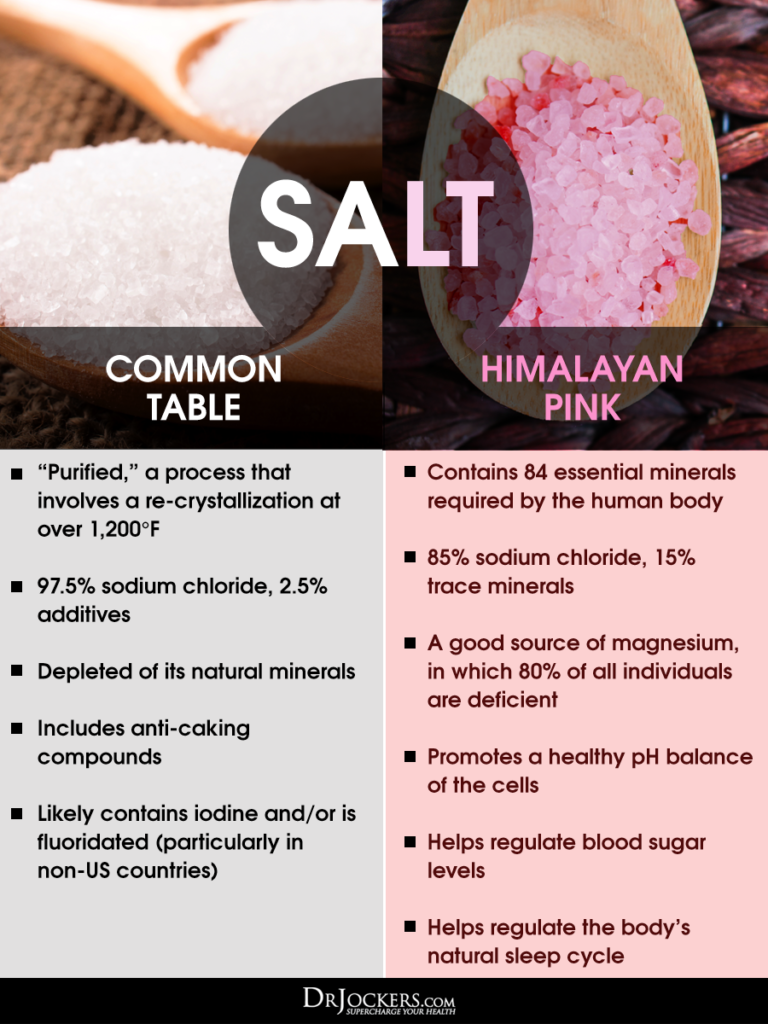
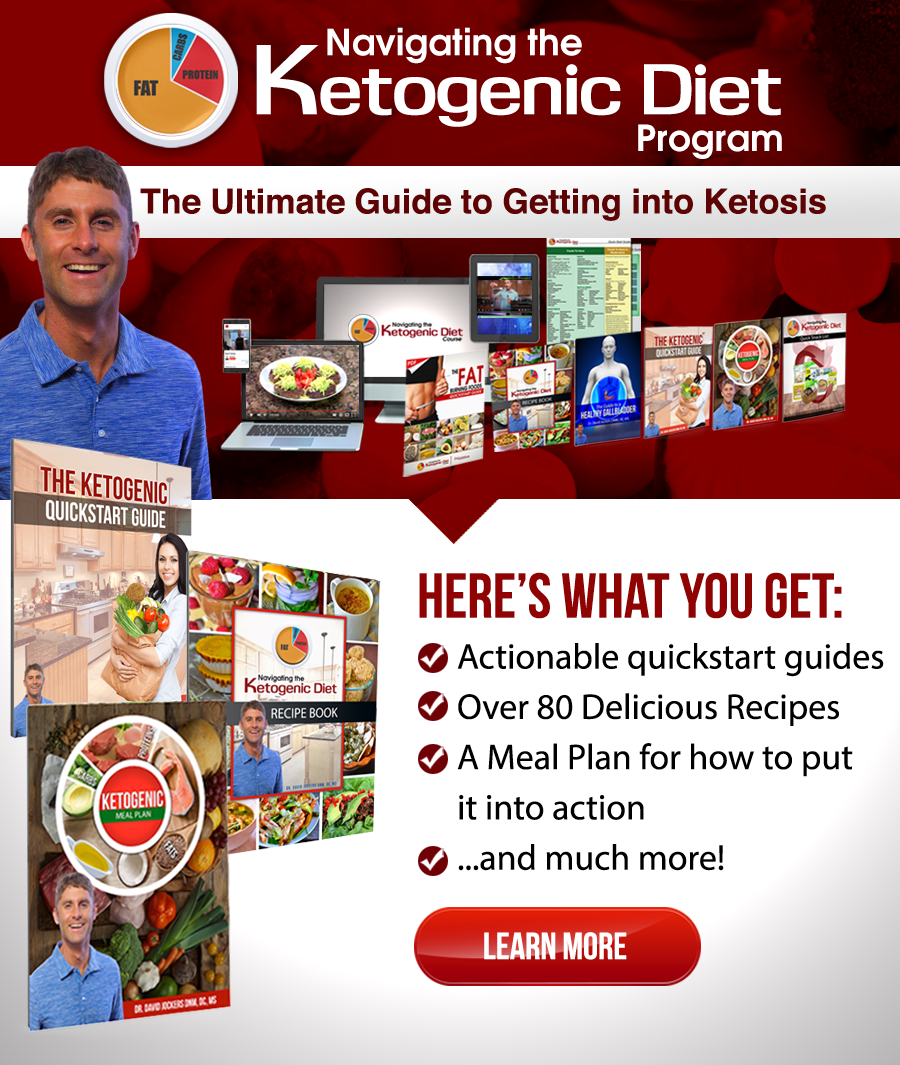


Where can I buy (from a respectable company) good essential oils – 100% pure?
Hey Stacy, there are several good brands. My wife and I like DoTerra and my wife Angel helps people get set up with these. Email her at angelsoils@drjockers.com
Dear Dr david
Simply awesome information in very scientific way. Well done.
Dr Prakash
Thank you Dr Prakash! I appreciate and respect your compliments of my articles!
Dr. Jockers, thank you so much for this well-researched article. You’ve done the work for us to reap the rewards. You are helping and will continue to help so many of us as we share you work for which others will truly benefit! #respect and #thanks
Thank you so much Jackie! That means a lot to me. Look out for my upcoming E-book on the Ketogenic Diet.
Are coconut oil good for weight loss
Yes Charloote,
Coconut oil helps with weight loss. https://drjockers.com/the-superfood-power-of-coconut/
Can you please tell me if its ok to use the cocounut oil that they sell at Costco? Its a big tub.
Yes you can Lara! That is just fine!
This information was very helpful for me. I’m about to start my 19 year old daughter on the ketogenic program due to a serious health challenge we are facing. She has swollen lymph nodes and a mass in her neck and we are currently looking for the best program of treatment. If you have recommendations I would love to know them. There are so many different types of programs and treatments and diets, and we will do whatever it takes to help her get well. Thanks so much!
So Sorry to hear about this Cathy! Based on what you are telling me I would suggest doing the Cancer Cleanse program which incorporates the Ketogenic Diet: https://drjockers.com/cancer-cleanse-detox-program/
I also have enjoyed this series of articles, but surprised there’s no mention of magnesium to manage muscle cramping and constipation, both commonly associated with the low carbohydrate ketogenic diet.
Within a few weeks of starting the diet, I couldn’t bend over to tie my shoes without muscle cramping in my chest. And at night, I’d get leg cramps.
So far, I’ve taken magnesium citrate and magnesium citramate with good results. I take 450 mg per day – (300 mg with breakfast, 150 mg with dinner). Both supplements work well.
After reading your article, 7 Ways Magnesium Improves Your Brain, I’ve decided to add magnesium L-threonate in the hope that it will improve my brain functioning and sleep.
Great point Lisa! Those are good recommendations as well!
Lisa, I have had a problem with sleep for a long time, and have only been in the world of the living according to medical truth and righteousness now for 3 years; however, one of the best Magnesium fixes I have found, which also helps my sleep every night, is called Magnesium Heptahydrate, an Activation Products. I do also have 150 mg. cap- sules of of magnesium citrate I often take during the daytime; but, the Mg.7H20 I mentioned, can be rubbed into the body, and functions as a great natural anxiolytic before I go to bed. I squirt it on the bone areas of the body: chest; shoulders; on my hips and knees; rib-cage, and especially on the back of the neck, which I do ANYTIME sitting typing vigorously over a long time causes my neck pain. I have been using it since I first made the choice, and it is a lifesaver.
You have a large quantity of fat
That’s not harmful, though, is it?
No, it is actually quite helpful as the article explains.
Dr Jockers, assuming you have some arteriosclerosis, yet understanding healthy fats, how is Keto still a healthy eating style? I’ve read, a couple of people,on other Keto sites that said they had a heart attack.
Vegan LCHF
80-100 OFF/ 100-120 gr CH ON day
80-100 gr P/ day
300-400 gr F/ day
thank you for the great information….6th week on keto….lost 20lbs… from 276 to 252 give a 5lbs cusion….i feel amazing ….intermittent fasting daily…16 n 8…..learning more and more as each day goes by….i find it amazing to not purchase processed foods….i went thru a horrible withdrawl from sugars …..im ususally a 200lbs man @ 12-15% bf but let me tell you depression and food go hand in hand….but im on the way back …lets go keto family…its a lifestyle….
“Transformation begins in the Heart” ….
Great job June!!!
I’ve come to a stalling period – not gone up nor down in weight since Easter. I believe my ‘íssue’ could be that I work night shift and good sleep can be a problem. I have now read a few times that sleep is IMPORTANT (& I agree) but to get a good days’ sleep can be tough. I already take Melatonin tabs to help me and my room is as dark as I can make it but any other suggestions would be appreciated.
This article is interesting and I believe has some helpful information.
However the constant incorrect use of the word ‘than’ vs ‘then’ causes me to question all credibility.
Hey Zpoole,
Sorry to hear this! Thanks for bringing that to my attention! It has been updated.
Blessings!
Hello,
Thank you for your article. I am new at the keto lifestyle. I don’t seem to be dropping any weight, I have bad breath and I am having trouble sleeping. Have I cut the carbs back too much? Some days I have great energy, while others, I cant wake up. One day I was down several pounds and went back up the next day. Drinking fluids, eating veggies with each meal and protein with main meals. My appetite is suppressed, that is nice but I would like to see that on the scale. How long before I start burning fat? I’m increasing my healthy carbs today, hoping to sleep better tonight. Thank you.
Hey Arianna, Sorry to hear you are having a sluggish adaptation process. You may want to measure your ketone levels to make sure you are actually producing them. You can also supplement with this XCT oil to improve ketone production: https://store.drjockers.com/products/bulletproof-upgraded-xct-oil
Also check out this article: https://drjockers.com/follow-ketogenic-diet/
Hi Dr. Jockers! Thank you for making such a great site!
What about if you are a 60 year old woman and you are trying to lose 30 pounds? Would you still cycle in and out or stay in ketogenisis? Are you also saying that in the entire day I should only have 6 ozs of protein. Ack! 🙂 I have been trying my best to figure it out on my own and so far in the last 6 weeks I have lost 12 pounds….30 more to go. It is amazing that my sugar cravings are gone…what a relief! This is the first time in years I have been able to lose weight. Any advice would be greatly appreciated. God Bless and thanks-Robin
Great progress Robin! I would definitely recommend cycling out of ketosis at a cadence that works for you! Once a week works well for many people! Also take your bodyweight in Lbs and multiply it by about 0.7 and that will be around what you want your protein intake to be for the day. Keep it up!
Blessings!
My husband is 250 pounds. That times .7 is 175!!! What?
I would go by lean body mass. If that is 250 lbs of muscle, then yes 175, if not, then 100-150 grams of protein per day could be plenty!
I think that you first have to convert lbs to kgs by dividing by 2.2.
So 250 lbs/2.2 is about 114 kg.
Then calculate protein intake by multiplying 114 kg by whatever multiplier fits your energy expenditure level.
114 * 0.7 is about 80 g of protein per day.
Hey there, I loved the article. I recently started learning about being in ketosis. I have an interesting scenario for you. What would you suggest my macros be if I do crossfit 3-4 times a week at 6am and struggle with sleep apnea (partly because of I am overweight, around 31% body fat) I am 28, 211lbs, 5’7.
Also, any suggestions on what to eat? and how often?
Hey Hector, You would probably want to follow a targeted ketogenic diet where you consume carbs only before and after really strenuous workouts while following a high-fat, low-carb diet the rest of the time. The protein Requirements in this article should fit your needs for the active individual as long as you are consuming enough fats to keep you full and sustained throughout the day. I don’t generally recommend strict macro tracking but you can check out this link to come up with these values https://cronometer.com/mercola/
Amazing article. Just what i needed to get back on the keto wagon
Great Aaron!
Dr Jockers,
It is really difficult to find any information worth a hill of beans (or chicharones) on the internet, but every once in awhile you run across one that is both informative and concise. This is that article on Ketogenic eating. Thank you for that, I have book marked your site, and will visit regularly as I travel down this Keto path.
Also, I would be interested in your recommended method to increase the amount of fiber for someone following this lifestyle? I imagine it to be from natural sources such as vegetables, but which vegetables would be best to not over carb, and to also get the best bang in terms of vitamins and minerals.
Thanks again,
That’s great Steve! Thank you for reading! Avocados are the absolute best for fiber as they are also a great ketogenic food. Leafy greens, cruciferous vegetables, and asparagus are all great too.
Great article! I’m pretty new to Keto, but as a Celiac have found the relief in intestinal issues VERY rewarding! Weight has been tough though, as I find it difficult to stay at 5% carb intake, and getting good fats without protein is also a struggle but I’m trying different menu plans and know I’ll find the right mix soon.
My question is about the fasting, which I’d like to try. 1) I’m not sure if I missed something, but you indicate a building phase as time between first and last meal, and cycling phase as last meal to first meal, but you bring up cleansing first, as if that should be the morning process.
Which would you do first, the building or cleansing phase? And at what point do you actually consider it a ‘start’? So, if you’re starting with the cleanse, does your 12-16 hours start at the point at which you “would” have had a breakfast meal?
Also, I strength train and do cardio 4-5 times per week. Would you recommend a fast during exercise periods? I do have a hard time with yawning if I go to my personal trainer without having had at the least, a protein shake and/or some eggs an hour before. Would this be improved after a time if I were fasting during this period?
Thanks for the great information!
Roxanne
Hey Roxanne! The cleansing phase is simply the time between dinner and breakfast when you are fasting. It takes about 4 hours to fully digest and process a meal after which the body will focus more heavily on cleansing processes until the next meal is consumed. The longer you fast, the longer the cleansing window will be. You can definitely workout, if you have trouble working out fasted then I usually recommend using an essential amino acid supplement like this one: https://store.drjockers.com/products/amino-strong
Dear Dr. Jockers,
I started doing keto about 2 weeks ago. Had to go through a difficult keto adaptation phase or the keto flu as many people called it. My question is that if I do the cyclical keto you mentioned, so every time I start my keto diet I would have to go through keto flu again?
Thanks and more power!!!
Tony
Hey Tony, I would recommend following a ketogenic diet for a month then cycling from there. Once you are fat adapted you will enter into ketosis much more quickly without experiencing ketosis flu symptoms
SO HAPPY THAT YOU REALIZE THAT THERE IS A GOD AND HIS SON WHO SUPPLIED GOOD FOODS FOR US, BUT WE EAT A LOT OF JUNK FOODS THAT EVENTUALLY MAKE US SICK, BESIDE THE FACT THAT SIN CAN BE A CAUSE TOO. MANY OVER LOOK THAT FACT…I LEARNED THIS AWHILE BACK AND IT HELPED ME IN MANY WAYS… THANK YOU FOR CARING AND TRYING YOUR BEST TO HELP PEOPLE!
Thank you for reading! Blessings Rosie!
Thank you for the article. I am having difficulty finding definitive answers to:
a) should you take exogenous ketones every day to ensure you stay in ketosis?
b) when is the best time of day to take exogenous ketones for weight loss?
I understand ketones are not a bandaid for cheating on the keto diet or for weight loss on their own. We are strict with our intake of carbs and zero sugar.
Thank you
Hey Lynda, if you are consuming enough fats and very low carbs then exogenous ketones are not needed. You could use them in cases where you cycled out of ketosis and wanted to get back in more quickly! Using MCT oil on a regular basis could be helpful as well!
Hi Dr. Jockers, Thank you for sharing this wonderful information. I started Keto and LOVED it, but was def. wondering about whether I could maintain long-term. Based on your 10 tips, I am hoping I am correct in assuming this is lifestyle. Going to commit. Probably because of old programming however, I am wondering about links to atherosclerosis? Is there any research on that? Do you have a cardio buddy who could weigh in (no pun) on the high fat diet and cardiovascular health? For so long I have thought that a diet very low in animal products and high in fruits and vegetables was a good way to maintain cardiovascular health as well as colon health. For me, that basically means always craving carbs though. The keto has been a great way for me to feel full more and experience cravings less.
Thanks, Laura
To: Dr Jockers
Can you please advise which low carb veggies to avoid to prevent abdominal distress due to intermittent Colitis … (with alternating constipation – up to a week) ?
I can only eat leafy greens, corn & peanuts occasionally (to relieve blockage) and tend to do well with steamed veg’s (broccoli & cauliflower) but I’m not sure about very many other “safe” low carb foods in order to prevent a bad flare !
I lost 55# by eating low carb (now maintain 115#) but I’m afraid I don’t absorb enough nutrients due to Colitis flares.
I sincerely appreciate your knowledge & expertise !!!
Hey Linda, sorry to hear about this! Here is a good guide for this: https://drjockers.com/wp-content/uploads/2016/09/LeakyGutShoppingGuide_Final_9_12_16.pdf
So, if you are an endurance athlete (Run Half Marathons), How do you do the cyclical process. I run short miles (3-5 miles) 2 to 3 times during the week, then run my long runs on Saturdays. Long runs are typically 8-16 miles. I’ve never done Keto so just want to make sure I can fuel myself properly.
Thanks!
Hey Debbie, many people find that ketosis is great for maintaining energy levels on longer runs! You could still do the once a week cycle but wait until after your long Saturday run. Follow this with a fast from dinner Saturday night until Sunday dinner and consuming a ketogenic meal on Sunday night dinner.
Thank you for a fantastic article with some great dieting tips! Fellow keto’er here and I’m also training for an ultra marathon. However, I’ve had a bit of difficulty determining how many calories I need each day with my training schedule. I know there are lots of daily calorie calculators online but not only do they not seem geared for endurance athletes but the ones I’ve found can vary greatly in their calculations. Are there any specifically that you could recommend that you’ve found to be more accurate? Thank you and much applause for such a great article!
Hi i am new doing the keto diet and doing great with fasting but just wondering if it is ok that i would have cream in my coffee during the fast …I cannot do the coconut oil and butter it gives me heartburn every time …or should i wait till my fast is done ?
Grass-fed cream may be okay. Dairy does contain some naturally occurring sugars so you may want to monitor your blood sugar if you try this!
I an on week two of Keto. I am having edema on my shins. It is quite pronounced on my left shin. I had a terrible muscle cramp in my left calf after attempting a HIIT workout at the gym, so I am not sure if that is at all related. It is three days later and my calf is still pretty tender. I did take potassium and magnesium, but had to stop because I am scheduled for surgery next Wednesday and am restricted from taking supplements until after. Is edema common with the Keto diet? Is it likely that my body wont work on the Keto diet?
I have not heard of this before April, you may want to try the strategies outlined in this article: https://drjockers.com/10-ways-improve-lymphatic-system/
This is a very helpful article. Thank you.
I would love to know how I could do the Keto diet when I am allergic to coconut, avocado and dairy (so no ghee, it gives me migraines, too). How can I get enough healthy fats into me?
Also wondering if the Keto diet could eventually cure me of these food allergies?
Hey Esther, that sounds like a tough situation. A ketogenic diet may be difficult for you with these allergies. You might want to work with a functional nutrition practitioner to figure out why you are reacting like this.
I just found out my A1C is 9.2 and I”m 209 lb female. My Dr. told me no more carbs and try Keto. I have to say this is overwhelming to say the least. Expensive too, but yes, I’m worth it. I started today….no more diet soda (sad face), I’ve had water only with crystal light in one of them. I had boiled egg (white only) for breakfast, a salad for lunch and a piece of munster cheese. I feel a bit light headed and unfocused. I don’t know if I’m doing this right? I have read and read and looked and evey time I put in age and weight, it comes up with different numbers for Carbs, Protein & Fat. I am using the Total Keto Diet app on my phone and it says 114g Fat, 92g Protine & 25g Carbs. Does that sound right?
Hey Deb, your body will need some time to adapt to burning fat which may take a couple weeks. Also, opting for better foods choices will be important, don’t be afraid of egg yolks! Here is a good article to start: https://drjockers.com/keto-metabolic-makeover/ We also have a great online program with a shopping guide, recipes, meal plan, and a ton of tips on how to make this work really well for you: https://drjockers.com/ketogenic-program-2/
I am taking Lovastatin 20mg daily for HLD, Is there any contraindication for being on the Keto diet and taking statins daily since the increased fat consumption is being broken down by the liver? I am overweight, and my MD advised me to eat less carbs, but this diet is only about 25% carbs daily. should I be concerned?
No the keto diet plan should be great for you. Start here: https://drjockers.com/keto-metabolic-makeover/
Any thoughts on the company Pruvit and their dietary supplements to put your body in state of ketosis?
I think there are many great options for this available Ben! I’ve been getting great feedback on this one: https://store.drjockers.com/collections/ketogenic-products/products/ketoedge-1
I tried keto diet for 2 weeks and the result was amazing,I lost 7 kgs. My weight was down from 83 kgs to 76 kgs. I have been continuing the diet but now the weight has been stalled ,its been 3 weeks since then.Why is that so?
Yes this is common. In the beginning you lose a lot of water weight as your deplete glycogen. It should slow down after the first few weeks. Here is a helpful article: https://drjockers.com/weight-loss-hacks/
I’ve been doing SKD diet for 2 years straight however after many bouts with hypoglycemia I had NO CHOICE but to add complex carbs to diet. It’s been 6 months thus far however, I want to re adapt to keto so my question is: how long will it take to readapt? And Secondly, in order to not go down or experience a low whilst working out, do you suggest drinking a bit of coconut water before exercise? Or will complex carbs be better? (these ideas are along the TKD approach) thanks kindly in advance for you replies…
It should take 2-4 weeks to keto adapt. I would recommend following the guidelines in this article: https://drjockers.com/keto-metabolic-makeover/
Trying to learn about implementing KETO diet for my Dad. Lymph node biopsy shows SLL/CLL (Small-cell lymphocytic lymphoma/Critical lymphocytic leukemia). White male, 81 years old. Never been in the hospital or sick before! His abdomen had been drained once a week for the past 4 weeks. First time 6 liters, then 5, then 4 and lastly 3 liters. He had his first Chemo treatment a week ago. Rituxan and Bendamustine IV’s the first day. Second day was only Bendamustine (which, thank the Lord, he tolerated beautifully).
He left the hospital with a prescription for Allopurinol.
WBC went from 18.81 to 7.5 one week after treatment. Protein level before treatment 5.8, one week after treatment 5.3 and albumin from 3.0 down to 2.6.
So, my question is:
How much protein for a SLL/CLL cancer patient just starting active treatment?
I’m thinking my dad’s bloodwork is showing he needs to up his protein.
Just not quite sure what to focus on???
Hi Leslie, I am sorry to hear about your dad. This article offers more information on protein requirements on a ketogenic diet: https://drjockers.com/plant-based-ketogenic-diet/. There is a lot going on with your dad and all drugs have side effects. I would recommend that you find a functional health practitioner to customize a specific plan for him. Here is a helpful article: https://drjockers.com/functional-nutrition-tips-to-find-a-great-health-coach/
Keep up the superb work, I read few blog posts on this website and I think that your website is very
interesting and holds lots of wonderful info.
Thank you Timmy! My team appreciates your feedback. Blessings!
Hi DR jockeys. I’ve been following Dr Perlmutter and have watched several series on functional medicine, including a couple of yours. I’ve been eating mostly Keto for about a year. I had a blood panel done: total cholesterol is at 270, HDL 73, triglycerides 73, and LDL at 173 (they do not break down the LDL into components). The Dr wants to put me on a statin. I’m not going to take one but I am concerned about these numbers as heart disease has been the cause of death for several family members. I understood from these books and series that my numbers should improve. HDL & triglycerides have but the other components are higher than ever. Why is that? More importantly, should I be concerned? I’m taking plant sterols (sp?) for the time being. Finding a functional MD within a few hours drive has been a failure so far. I eat organically, lots of non-starchy veggies, and some organic grass-fed, pasture raised meat, chicken, eggs to the extent that I can. And I exercise most days, and I’m fasting (in fact, a 24 hr+ fast before my blood test). Seriously, What am I missing?
Hi Doctor Jackers, I’m interested in what we can eat, if we can’t eat anything fatty that stimulates the life cycle, not even eggs, we have to do something, we can’t survive only on salads.